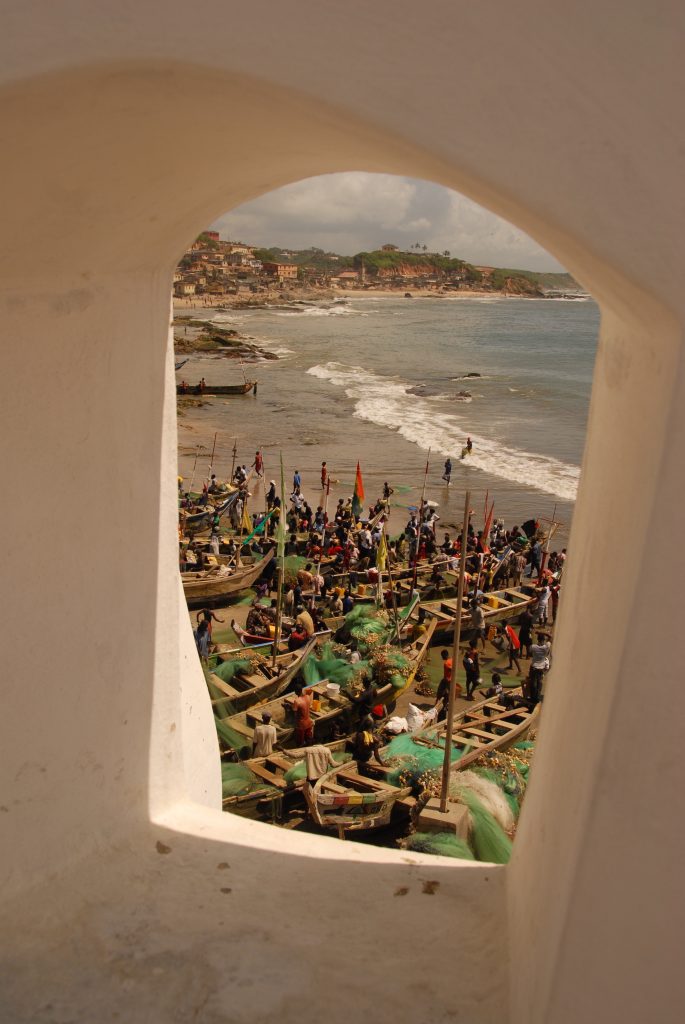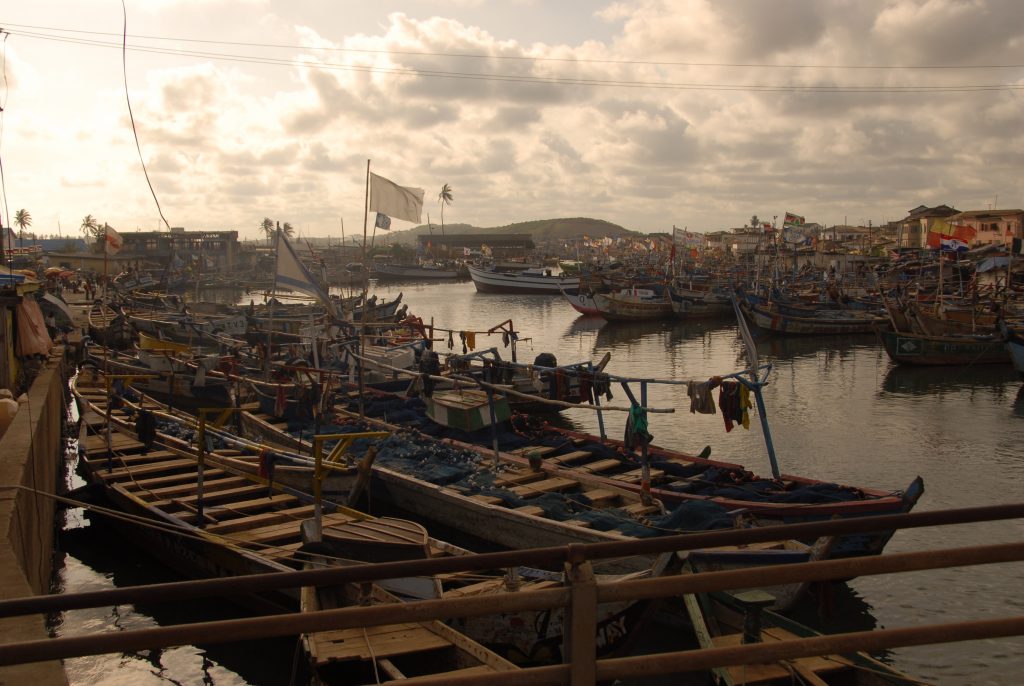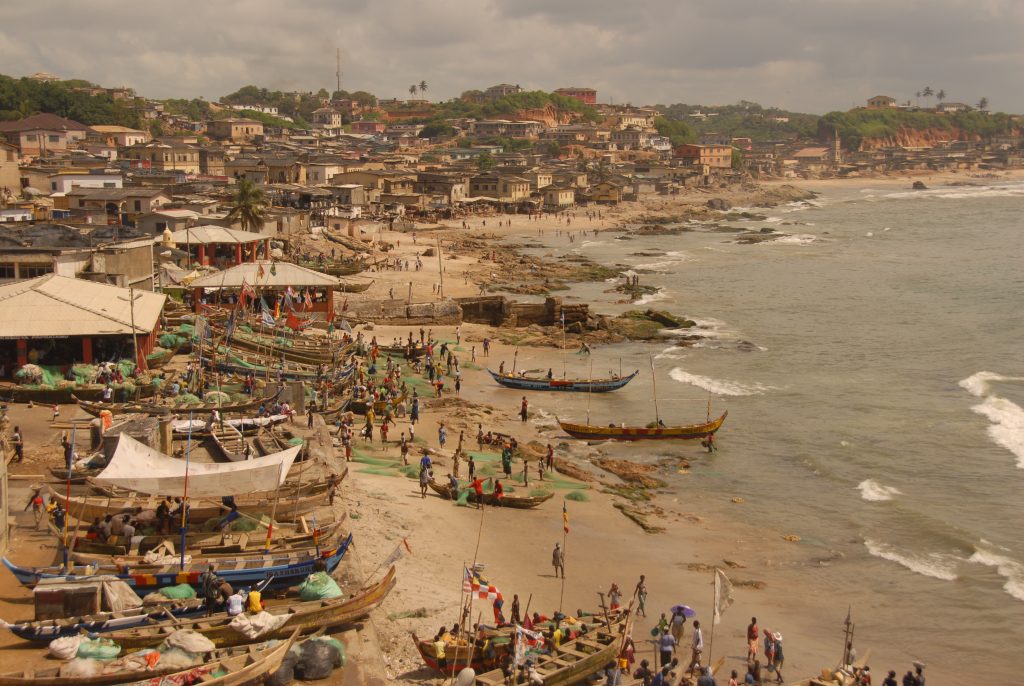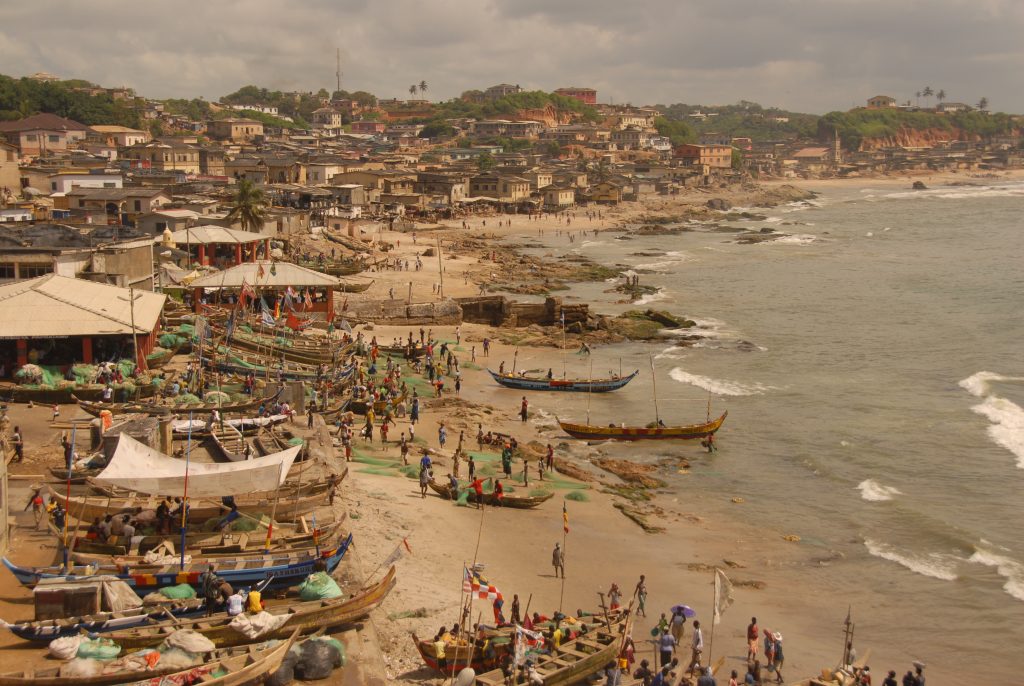Article and Pictures by Nicholas George Donovan Grazia

The volant migration of the Arcadian population in Sub-Saharan Africa (SSA), in search of a better life in metropolitan megapolis, has culminated in the profuse and irrepressible growth of the urban centers. Due to this monumental expansion of the population in SSA, a major public perturbation has risen regarding waste management and access to energy. The implication of the latter is municipal solid waste (MSW) management, currently the most crucial challenge that economies such as Ghana in SSA must face. Access to basic energy and electricity are obvious developmental obstacles in SSA; over 500 million individuals remain in the dark in this region of the world. The data on this is quite harrowing. There is a plausible interdependence between access to affordable and reliable energy and the following developmental issues regarding productivity growth, poverty reduction, improvement of the health sector, and sustainable socioeconomic development.
On average, Ghana generates more than 12’710 tonnes of MSW daily, and only about 10% of that is collected and properly dumped. Other forms of waste such as textiles, leather, plastics, papers, and organic often end up in gutters, drains, and open fields. More dangerously, some of this waste is deposited in water bodies which ultimately results in flooding and grave health problems. Each year, as per reported by the Water and Sanitation Program, 19’000 Ghanians meet their maker, including roughly 5100 children under the age of 5 perishing from diarrhea related illnesses. Unsurprisingly, 90% of these cases are linked to the poor water, sanitation and hygiene of the country. Ghana’s incompetence in managing waste correlates to the present trend of rising greenhouse gas emissions. Untreated organic waste contributes to 24% of Ghana’s greenhouse gas emissions inventory.
Only 35% of SSA’s population has access to electricity, resulting in the stagnation of the region’s economic growth. SSA’s installed electricity capacity, in comparison with the rest of the globe, is the most insufficient. The demand of electricity in Ghana is steadily increasing, at about a rate of 10% each year. Current supply is barely satisfying the demand; this clearly depicts how inadequate the electricity supply infrastructure continues to be in SSA. The guarantee, as well as the dependability and security of the power supply in Ghana, has been called into question. The private sector has proved to be the driver of growth in multiple sectors of the Ghanian economy, unfortunately power generation is still lagging behind. Ghana has been on a quest for swift industrialization of its economy, but energy poverty lurks in the shadows as the lack of a dignified energy sector is a persisting matter of distress.
Low-income communities, in terms of access to energy, are the most marginalized in society. These communities have a vast reservoir of untapped raw energy material. This energy feedstock is in the form of waste, also known as “brown gold”, and it continues to be an unharnessed resource. In today’s world, the notion behind Renewable Energy (RE) has shifted from the “alternative energy source” status it had in the past, to now being seen as a “competitive energy source”. The growing importance of RE is accredited to energy insecurity, and climate change issues. In many ways, RE could be viewed as a, if not the, viable source of sustainable energy for our socioeconomic and environmental needs. The production of energy generated from RE sources such as wind, biomass, solar, and hydro plants has not been exploited to its maximum extent. The Ghanian government had set in motion the target to achieve 10% of RE inclusion by 2030. At the present state RE in Ghana accounts for less than 1% of the total installed capacity. Hence, following the declaration of the Renewable Energy Act 832 of 2011 by the Ghanian Parliament, renewed efforts to promote RE programs such as Waste to Energy (W2E) and Solar are well underway. A considerable amount of SSA nations are considering to opt for the hybrid solution of W2E and solar, Ghana is among these nations and would present itself as a great candidate for this hybrid system with the goal of providing Ghana with sustainable energy through an avant-garde method.

Adopting a smart energy control system to ensure the proper incorporation of two energy systems, the potentiality of a hybrid solar PV and biogas energy system is economically feasible. It is important to keep in mind that the over imposition of one technology over the other would render the project economically unsound. The analysis that were conducted have revealed that the concept of this hybrid system creates a waterfall scenario where the impact on communities is far and wide when it comes to solving issues such as waste management, job creation and community-based power generation. Socio cultural barriers in Ghana prove to be an issue when it comes to establishing biogas plants as land ownership problems often halt the implementation of RE plants in Ghana. When looking at the two technologies that are being thought of, the benefits of solar PV in financial terms clearly outweigh the costs when compared with the negative NPV and IRR at a discount rate of 15 of biogas. In order to see this, one must forget the non monetary benefits associated with W2E which include ridding Ghana of its overwhelming sanitation and treatment of waste issues, which are ultimately the main drivers for adopting biogas as an energy technology. Although the proposed hybridization system may not be cost competitive when looking at it in the short term compared to the conventional technologies that are available, what this system does is that it guarantees a non erratic supply of energy with solar energy supplying daytime electricity and biogas taking care of the nighttime energy supply. What this ensures is the reduction or even the elimination of battery costs coupled with the reduction of waste overall.

Article & Pictures by Nicholas George Donovan Grazia.
Bibliography
Desa, U.N., 2015. United nations department of economic and social affairs, population division. world population prospects: The 2015 revision, key findings and advance tables. In Technical Report: Working Paper No. ESA/P/WP. 241.
Miezah, K., Obiri-Danso, K., Kádár, Z., Fei-Baffoe, B. and Mensah, M.Y., 2015. Municipal solid waste characterization and quantification as a measure towards effective waste management in Ghana. Waste Management, 46, pp.15-27.
Obeng-Darko, N.A., 2019. Why Ghana will not achieve its renewable energy target for electricity. Policy, legal and regulatory implications. Energy Policy, 128, pp.75-83.
Lin, B. and Ankrah, I., 2019. Renewable energy (electricity) development in Ghana: Observations, concerns, substitution possibilities, and implications for the economy. Journal of cleaner production, 233, pp.1396-1409.
Agyenim, F.B., Dzamboe, P.D., Mohammed, M., Bawakyillenuo, S., Okrofu, R., Decker, E., Agyemang, V.K. and Nyarko, E.H., 2020. Powering communities using hybrid solar–biogas in Ghana, a feasibility study. Environmental Technology & Innovation, 19, p.100837.
Mohammed, M., Egyir, I.S., Donkor, A.K., Amoah, P., Nyarko, S., Boateng, K.K. and Ziwu, C., 2017. Feasibility study for biogas integration into waste treatment plants in Ghana. Egyptian journal of petroleum, 26(3), pp.695-703.
Obeng-Darko, N.A., 2019. Renewable energy and power: a review of the power sector reform and renewable energy law and policy nexus in Ghana. Africa Review, 11(1), pp.17-33.
Kemausuor, F., Nygaard, I. and Mackenzie, G., 2015. Prospects for bioenergy use in Ghana using Long-range Energy Alternatives Planning model. Energy, 93, pp.672-682.
Sakah, M., Diawuo, F.A., Katzenbach, R. and Gyamfi, S., 2017. Towards a sustainable electrification in Ghana: A review of renewable energy deployment policies. Renewable and Sustainable Energy Reviews, 79, pp.544-557.
Gyamfi, S., Diawuo, F.A., Kumi, E.N., Sika, F. and Modjinou, M., 2018. The energy efficiency situation in Ghana. Renewable and Sustainable Energy Reviews, 82, pp.1415-1423.
Ofori-Boateng, C., Lee, K.T. and Mensah, M., 2013. The prospects of electricity generation from municipal solid waste (MSW) in Ghana: A better waste management option. Fuel processing technology, 110, pp.94-102.



